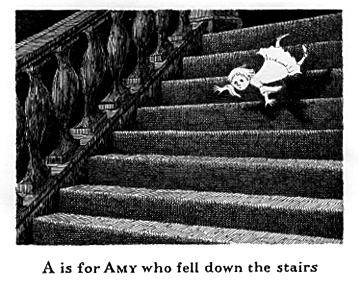Eight Mess Section
Reading (&) the Body
I’m re-reading a little Peter Brooks in column A and in column B thinking a lot about reading and the body, reading as consumption, reading while eating, reading while shitting, reading while smoking, the frenetic idleness of reading finding its counterpoint in various bodily acts/needs/processes.
From Brooks’s Reading for the Plot:
Speaking reductively, without nuance, one might say that on the one hand narrative tends toward a thematics of the desired, potentially possessable body, and on the other toward a readerly experience of consuming, a having that, in an era of triumphant capitalism, is bound to take on commercial forms, giving to the commerce in narrative understandings a specifically commercial tinge.
What do you do when you read? Or do you just read?
Kevin Sampsell Week (3): A Reading at A Reading

Collectors Of
 Writer: What do you think about when placing stories or flashes or essays or poems or whatnot in a collection?
Writer: What do you think about when placing stories or flashes or essays or poems or whatnot in a collection?
Order? Disorder? Intent?
Reader: How do you ingest a collection? Start to finish, left to right, top to bottom—blar!
Reader: A while back I was reading Drift and Swerve by Samuel Ligon and found myself intrigued by Nikki, a reappearing character. So I read all the Nikki stories first, then read the others.
Writer: Is a collection an album? Greatest hits, do you hear a single, does anyone remember the term concept?
Reader: This Richard Russo collection, it had a spectacular story, one, and the others…well.
Seems like you can crag in more tone shifts, more gnashes, poet. Can the prose writer do the same, or do these texts need to have some similarity?
You say hybrid, I say what?
Let’s bale these tendrillic texts, bathtub them, and call everything a novel! So clean!
OK.
Was just wondering. Etc.
When was the last time you read a book you didn’t really want to read? How did that go?
Is Masocriticism the Only Way?
 When I teach undergrad lit classes, I often start with a little chat about why we read, what poetry and stories do for us, or, in other words, why they are required to take the class. A few times, I’ve brought up the Kafka quote about a book serving as an ax for the frozen sea within us, or the Dickinson one about how she knows something is a poem if she feels like the top of her head has been blown off. Invariably, my students fail to see why either of these is a desirable outcome.
When I teach undergrad lit classes, I often start with a little chat about why we read, what poetry and stories do for us, or, in other words, why they are required to take the class. A few times, I’ve brought up the Kafka quote about a book serving as an ax for the frozen sea within us, or the Dickinson one about how she knows something is a poem if she feels like the top of her head has been blown off. Invariably, my students fail to see why either of these is a desirable outcome.
Yet there is certainly an enduring trend in some circles of reviewing and back-cover-blurbing wherein the highest praise for a book is how much injury it has done to the reader-critic. “That book destroyed/killed/frightened/destabilized/wrecked me” seems always to be a compliment. It’s trendy to say that reading oughtn’t be therapy, or comfort, or safety, or anything other than terribly, personally debilitating.
Is this mere trend, a new way to say the same thing, or is it really this way? Are we all so desensitized that we’re happy for any kind of feeling? Or are writers (who tend to be the ones behind this particular brand of criticism) engaged in elaborate sm rituals, in which we get to be sadists when we write and masochists when we read? Is there room for reading good prose or poetry to act as a stopgap, however illusive and broken and temporary, against impending death, and betrayal, and loss?
October 22nd, 2009 / 5:56 pm
What U Readin’ 4?

Ok, not to start the same argument all over again, but certain comments got me really wondering: if you think a book that meets or surpasses what Ulysses did for its time is not being created during our time, why the fuck are you writing? Better yet, why the fuck are you reading? To make the daisy chain just a little bit longer? Sure, maybe you think Ulysses as a book is actually boring (read: work) (haha), and the next book object that would do what it did now would likely look nothing like it (which is, I think, another misconstruing of my point: of course it wouldn’t! otherwise it wouldn’t be new…), but for my money if you are so dead in the water over the prospect of innovation (read: ingenuity, fun), and honestly believe that people out there (outside yourself) aren’t writing in such ways, I have no idea what business you have near printed matter, much less discussing it in a public forum. There are enough people to stir the swill. But really, though: why?
Addendum to this question (prodded by Q’s from Christian): Are you an amibitious reader? Why/why not? How?


